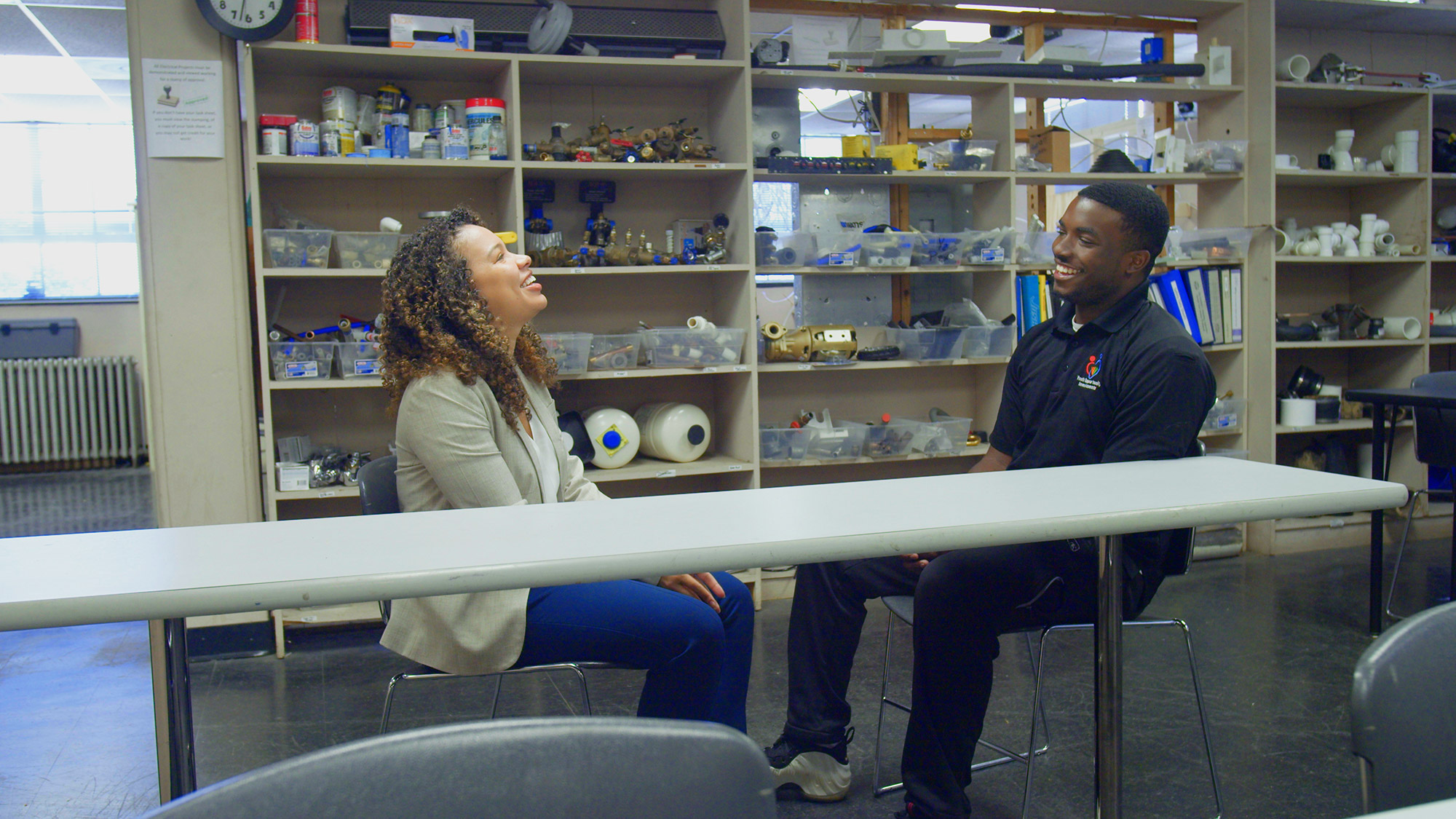Change is collective
“No one’s circumstances should be dictated by where they live. I want to see a world in which all young people have access to opportunity.”
Her own words
We can predict a child’s outcome by where they are born in our country. My life’s work is to disrupt that prediction.
When I was 8, my family went through difficult financial times. We went from a skyscraper in Manhattan to a single room at my grandmother’s home in Detroit. In less than a month, my whole world changed. Still, I was surrounded by love. I was young enough to quickly adapt, and I was fortunate to make so many new amazing friends in my neighborhood.
But while my friends and I had many things in common, we had one glaring difference: My mother was able to get me access to schools and scholarships that would shape the rest of my life. I felt it was deeply unfair that the schools in my neighborhood were under-resourced and lacking in support, and that I had to leave my community for better options. A strong education and enrichment programs made a difference in my life, but don’t all of our children deserve access to opportunity?
Over the last decade, I have dedicated my life to attempting to understand how to best create new opportunities and open doors. From my long days and nights working with children through Harvard’s Phillips Brooks House Association to my time consulting in the nonprofit sector, one thing is abundantly clear: The future of our society hinges on creating viable pathways to social mobility.

Lockridge-Steckel with Collective Leader Michael Rice Jr.
Justin Saglio/Harvard Staff
Ultimately, my belief in equity and opportunity inspired me to start The Collective in my adopted hometown of Memphis. Memphis drew me in because of its heart and soul. But much like Detroit, we have too many young adults languishing and stuck. We have 45,000 young adults out of work and school at any given point, and up to 15,000 jobs available, but we struggle to connect the two.
The options you have at 18, 19, or 20 can shape the rest of your life — for better or worse. Simply put, The Collective is trying to address systems that are not working for young people — systems that determine what kind of education they receive, what jobs they have access to, and how much they are paid.
We designed our organization to start with what young adults want and need. First, we invest in individuals by building high-quality programs that help young adults get living-wage careers. Then, we partner with employers, schools, and others to help remove some of the barriers we witness, which will ultimately fix broken systems.
Our goal is to create a world where every young adult thrives. I feel fortunate that I have access to my dreams, but quality education, opportunities, and choice for all should be the norm, not the exception. And it will take all of us working together to make that happen. Change is collective.
This story is part of the To Serve Better series, exploring connections between Harvard and neighborhoods across the United States.





